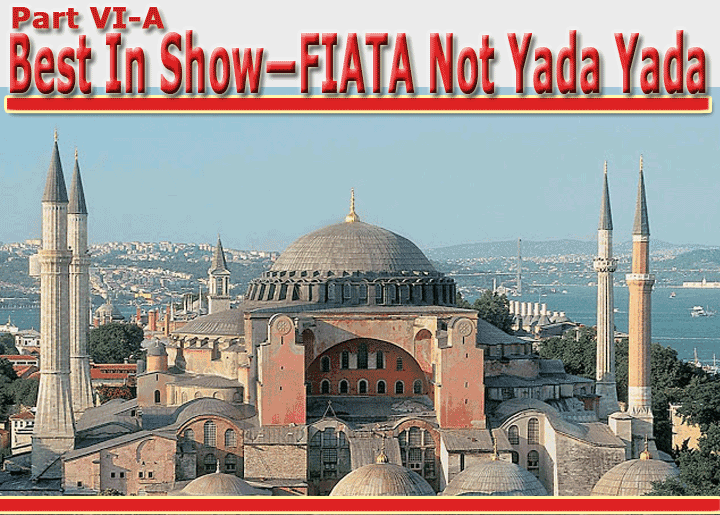
There
were three important and informative gatherings that capped off the
air cargo trade show event year for 2014. To us, the content of these
industry encounters can serve as a primer for things to come this year.
First came The Air Cargo Handlers Conference
(ACH) held in Milan. Next was The International Air Cargo Association
(TIACA) Air Cargo Forum (ACF) held in Seoul, Korea. Finally, there was
the FIATA annual world event that was held in Istanbul, Turkey.
It occurs to us that in the rush and the
overstuffed schedule of one trade show after another, quite a few worthwhile
presentations may have become lost in the blur.
FlyingTypers
editors have selected some outstanding sessions from all three events,
which we have euphemistically titled “Best In Show.” If
you missed any part of this series just select a highlighted issue and
click to read. This series concludes with one additional episode after
this.
For
Part I click here
For Part II click here
For Part III click here
For Part IV click here
For Part V Click here |
We
hope all this fine shared information effort from the best and brightest
in transportation might enjoy some further reflection whilst advancing
participation when viewed through the prism of time. We appreciate your
comments.
FIATA
Flying High In Istanbul
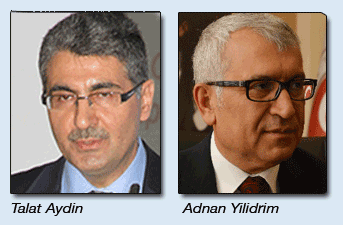 Conference
was launched with speeches by Talat Aydin, the Turkish Deputy Undersecretary
of Transportation and Adnan Yilidrim, Deputy Minister of the Economy
underlining the aggressive growth and investment planned for the Turkish
economy over the coming years.
Conference
was launched with speeches by Talat Aydin, the Turkish Deputy Undersecretary
of Transportation and Adnan Yilidrim, Deputy Minister of the Economy
underlining the aggressive growth and investment planned for the Turkish
economy over the coming years.
Some important statistics were revealed:
By 2023 Turkey aims to be one of the top 10 economies in the world and
will be responsible for 1.5% of world trade. In 2023 the average income
per capita will be 25000 USD per year.
Positioned between Asia and Europe, Turkey
is ideally situated as a hub for trade. Several ambitious projects will
help grow the economy including a rapid train system. Rail transport
is seen as an environmentally friendly way of transporting freight,
Turkey currently moves 20 million tons of freight by rail, but by 2023
this is expected to jump to 125 million tons.
An increasing number of port, road, and
railway projects are expected to contribute to Turkey’s phenomenal
growth,
Furthermore an investment of 55 million
dollars in infrastructure has enabled Turkey to boast over 24,000 kilometers
of divided roads.
In 2003, Turkey had one airline and 26
domestic airports. Now there are seven airlines with 53 airports.
The aim is to have a network of airports
within 100 kms of each other. Internationally, Turkey has grown from
60 overseas destinations served in 2003 to 336 today and is now 11th
in the world in air travel and 5th in Europe.
Meanwhile 1.2million people are employed
in the Turkish logistics industry.
Turkey is taking giant steps to become
a logistics hub and this is underpinned by modern technology.
For Turkey, growth will continue to be
based on sustainable logistics.
Sustainable Growth
in Logistics
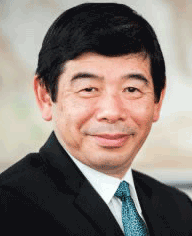 The
first session's keynote speaker was Mr. Kunio Mikuriya, Secretary General,
World Customs Organization with speakers: Mr. M. Mehmet Özal, ForwardingManager,
Ekol Logistics; Mrs. Diane Arcas Aktas, Executive Vice President of
the Arkas Holding Board of Directors; and Mr. Rayan Qutub, CEO, King
Abdullah Economic City (KAEC).
The
first session's keynote speaker was Mr. Kunio Mikuriya, Secretary General,
World Customs Organization with speakers: Mr. M. Mehmet Özal, ForwardingManager,
Ekol Logistics; Mrs. Diane Arcas Aktas, Executive Vice President of
the Arkas Holding Board of Directors; and Mr. Rayan Qutub, CEO, King
Abdullah Economic City (KAEC).
Mr. Kunio Mikuriya, (left) Secretary General,
World Customs Organization, opened by explaining the aim of customs
is to improve border processes and increase trade. The role of Customs
is also to protect citizens from elicit trade that threaten society.
Technology and risk management is increasingly used to facilitate trade.
It is also becoming increasingly important
that trade and customs understand each other’s needs. Customs
needs quality data to be able to perform risk assessment and speed up
the movement of goods through borders, trade need consistent standards
and processes to be applied by customs authorities. Furthermore customs
also need to identify ways to reduce interference and trade need to
understand why the data is required. There also need to be incentives
for compliant traders, such as being members of AEO programmes and in
return be seen as low risk trusted trading partners, thus enjoying expedited
clearance and transit of goods.
It is also important for governments to
recognize each other’s AEO programmes enabling compliant traders
to connect. Synergy amongst other government agencies is also vital
and the alignment of risk management strategies is crucial. Adoption
of a standard data set will not only become the basis of a single window,
but will help governments to exchange data in a consistent manner.
Meanwhile, ICAO and WCO are working on
a joint approach to align both sets of standards. It is also worth customs
authorities noting that if they are instrumental in expanding business
then tax revenues will also increase.
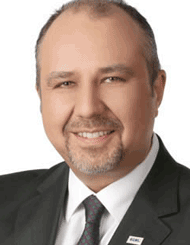 Mr.
M. Mehmet Özal followed by explaining that EKOL’s decision
to insource or outsource logistics is based on 4 influencing factors,
control of the financial and physical supply chain, whether to reduce
dependency on 3rd party suppliers, whether it will reduce costs and
whether it will result in a better service to the customer.
Mr.
M. Mehmet Özal followed by explaining that EKOL’s decision
to insource or outsource logistics is based on 4 influencing factors,
control of the financial and physical supply chain, whether to reduce
dependency on 3rd party suppliers, whether it will reduce costs and
whether it will result in a better service to the customer.
As well as controlling costs EKOL are
also committed to reducing their CO2 footprint. Technology is increasingly
being used to reduce congestion and pollution, and is leading to increased
combinations of rail and sea for transporting goods.
In terms of sustainability, EKOL identifies
three issues need to be addressed by the supply chain:
Green Supply Chains
How to develop transport corridors and
logistics services that minimize the environmental footprint and greenhouse
gases of delivered goods, allowing for sustainably building trade patterns
and product value chains.
Agro-Logistics
How to improve food security though reduction
of food losses during transit, bolstering both global food availability
and income for farmers.
Urban Logistics and Port-City Development
How to reduce congestion and pollution
through focus on the efficient distribution of goods in municipal areas.
When it comes to Turkish foreign trade
imports, 9% is transported by air, 15% travels by road, 59% by sea and
1% by rail with other modes accounting for the remaining 16%.
Fifty five per cent of Turkish exports
are transported by sea, 35% by road, 9% by air and 1% by rail.
The conundrum remains how to balance growth
with reducing emissions.
When it comes to sustainable growth and
the CO2 footprint of the transport modes, according to an ICCT study
relating to the carbon intensity of different modes of freight, air
contributes the highest CO2 intensity, followed by Heavy Duty Road Vehicles,
Rail and Sea.
Companies can reduce CO2 emissions by
turning to an optimized mix of air, road, rail and sea. Using a combination
of road and sea, shipments between Turkey and Germany can achieve average
terminal-to-terminal times of 96 hours and 120 hours total transit time.
For the technically minded, Mehmet explained
that a truck carrying a full trailer consumes 0.34 litres of diesel
per kilometer with one litre of diesel creating 2.7 kg of CO2. So for
every 100 km travelled with a fully loaded trailer 91.8 kgs of CO2 are
generated. EKOL have found that one single intermodal trip can save
823 litres of fuel and 2221 kgs of CO2. Furthermore by using multimodal
transportation traffic congestion at borders can be reduced, driver-related
problems can be eliminated, reliability is increased due to fixed Ro-Ro
and train schedules and less documentation is required.
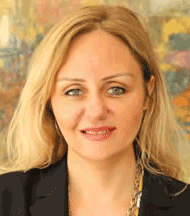 Mrs.
Diane Arcas Aktas then took the stage and explained that the environment
shapes the strategy of Arkas Holdings.
Mrs.
Diane Arcas Aktas then took the stage and explained that the environment
shapes the strategy of Arkas Holdings.
Arkas focuses on the best return for their
clients but realizes short-term strategies can have a long-term impact
on the environment. Arcas also recognizes investment decisions are increasingly
influenced by companies ‘green’ credentials.
Transportation currently contributes 13.1%
of greenhouse emissions with road transport responsible for most. To
compensate Arkas plans to increase the per cent of rail and sea transportation.
Sponsored by Arkas, the vessel Turmepa
II began operations in August 2006 in cooperation with the DenizTemiz
Association/TURMEPA for the purpose of gathering household waste and
bilge from yachts and small tonnage vessels. Arkas paid for the construction
and operating costs of this project in order to preserve the unique
natural beauty of Turkey’s coves and seas and also to help prevent
sea pollution, which is recognized as one of the primary reasons for
global warming. Ever since it began operating, the Turmepa II has been
plying Cesme’s coves to clean up the environment and make ship
owners more aware of these issues.
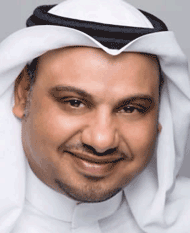 Mr.
Rayan Qutub explained that the KAEC masterplan involves building an
entire city from scratch on a piece of land that is roughly the size
of Washington DC, with investment in the project estimated to be as
much as $100bn by the time it is fully completed.
Mr.
Rayan Qutub explained that the KAEC masterplan involves building an
entire city from scratch on a piece of land that is roughly the size
of Washington DC, with investment in the project estimated to be as
much as $100bn by the time it is fully completed.
The opening of King Abdullah Port is just
part of the KAEC story. Encircling the port is the city’s Industrial
Valley, while further afield are areas set aside for residential communities,
tech clusters, universities, hospitals and so on. On the eastern side
of the city will be its second major link to the outside world, the
Haramain Station. When that is opened at the end of next year, the city
will become one of four stops on Saudi Arabia’s latest high-speed
rail network, linking the megaproject with Jeddah, Makkah and Madinah.
Nearby is the King Abdullah University for Science and Technology (KAUST),
while to the north lies the PetroRabigh petrochemicals plant —
the largest of its type in the world.
KAEC already has some 70 companies now
in the process of setting-up bases onsite — including multinationals
like Mars, Pfizer, and Danone, as well as local family giants such as
Abdul Latif Jameel, and the Naghi Group — and is now working to
attract mid-sized firms, as well as companies not in the specific sectors
it has targeted before.
KAEC will provide housing for every wage
bracket — from labour to luxury — and that affordable housing
will be launched shortly.
Geoffrey Comments:
An interesting and diverse set of speakers,
each with a different point of view.
First, Mr. Kunio Mikuriya asked for more
collaboration between traders and customs with traders recognizing customs
need and customs recognizing the need for a common set of standards.
From our own observations over the last
few years, it has become apparent that Customs (and other regulatory
authorities) have adopted a far more collaborative approach when developing
and implementing standards.
We think it’s fair to say that a
common set of standards will result in much faster implementation.
It has been reported that ICAO and WCO
are joining forces to also ensure that common standards are developed,
once again a positive move for the industry.
It had also been suggested by some that
advance security data for risk analysis purposes should be targeted
at high risk countries, however, this would need to be carefully thought
through.
The messages from EKOL and Arkas had been
quite clear in that moving from road and air to rails and sea is seen
as a far more ecological method of transporting goods. That being said,
it’s worth noting that air transport accounts for 2% of global
manmade CO2 emissions and has a target to cut net CO2 emissions in half
by 2050 compared to 2005.
Geoffrey





